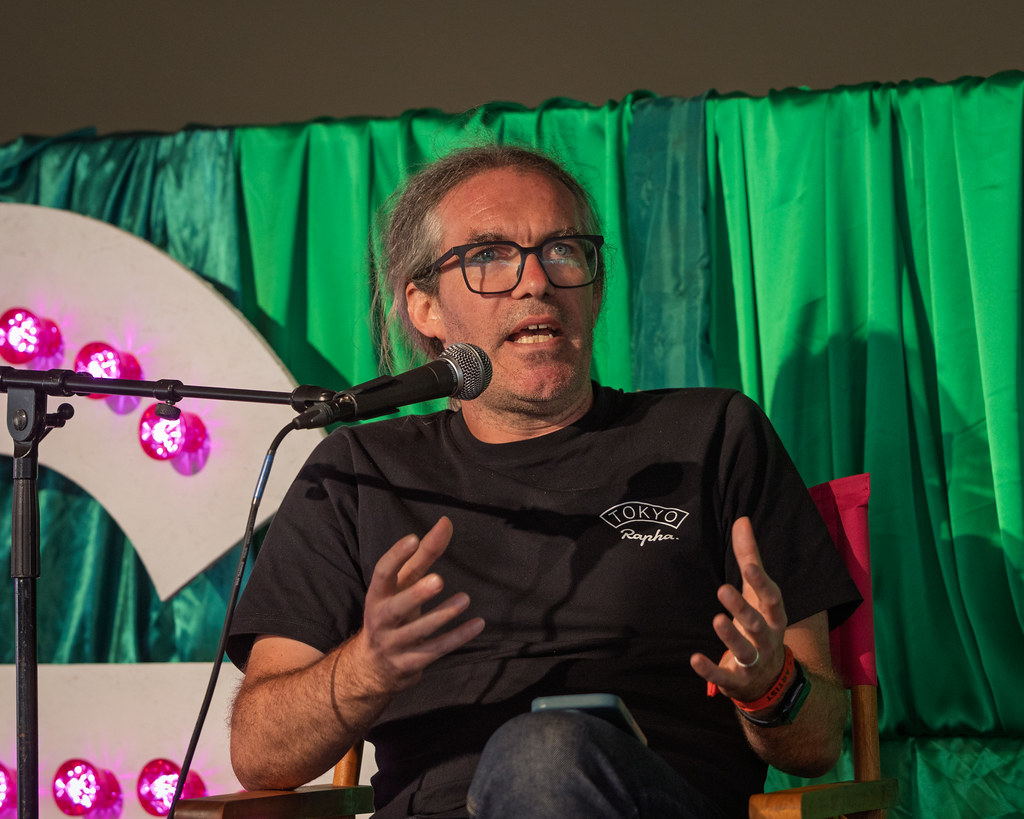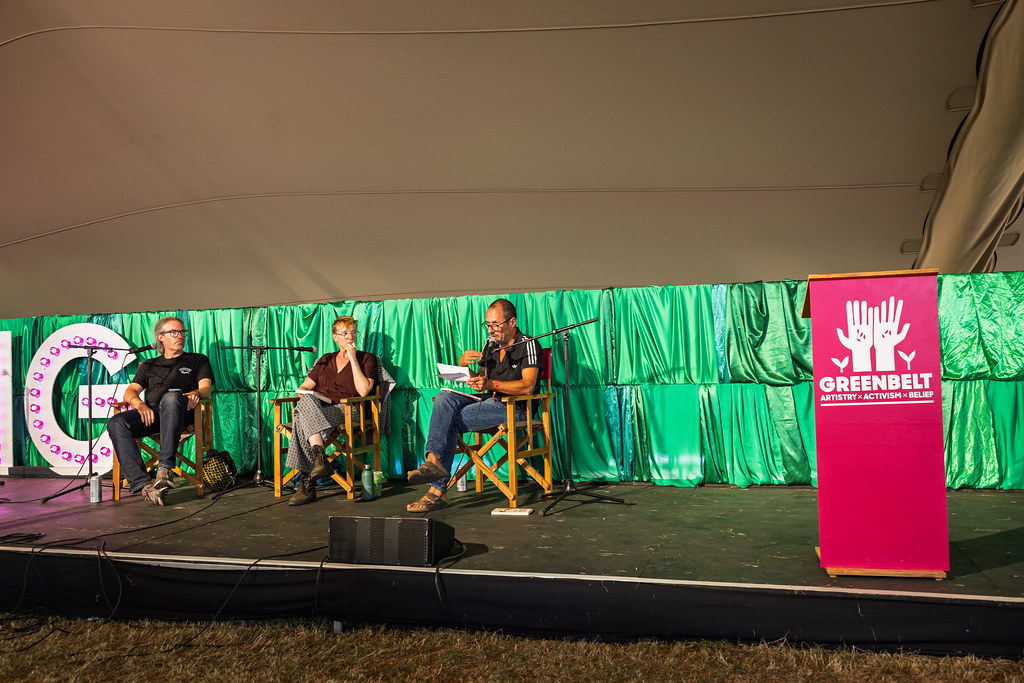Great to be back at the Greenbelt Festival again a couple of weeks ago. I’m often involved behind the scenes at the festival, but this year Kester invited Hannah and I to join him for an AI-inspired panel. His write-up was:
In the late 1950s, Marv Minsky, one of the early pioneers of Artificial Intelligence, excitedly turned to a colleague and gushed, “We’re going to make machines intelligent. We are going to make them conscious!”“You’re going to do all that for the machines?” his colleague replied. “What are you going to do for the people?
Now, seventy-five years later, that same conundrum has become more acute. Untold resources have gone into advancing machines… but the question remains: what are we going to do for the people?
This is not a panel about AI, this is a panel about us. Urgent, practical and guided by expert voices, this is about how to help humanity flourish in an age obsessed with investing more in machines.

It was the final event in that venue for the weekend (on after Jeremy Corbyn) so by the time we went on stage I’d already spent the weekend discussing the theme. Each of those conversations went broad, just as the discussion around the panel, but in my introduction I decided to focus in on three themes:
- We are undoubtedly in a hype cycle with all of the effects that go with that. I was struck by the number of comments that started “AI is doing …” which neglected the fact that what we’re always seeing is people doing things with AI (whether acting or talking) but also that so much of what we’re seeing and hearing is extrapolated. It’s very difficult to know what’s really happening and at what scale. That means we should cultivate a sense of perspective and resist the temptation to be overwhelmed.
- In the midst of the noise and change it’s hard for many of us to exercise our imaginations, but imagination and experimentation are vital. The progression towards “big tech” dominance feels inevitable but can be challenged. While much of that may require big investment and complex regulation, that will work well if we’re exploring other models. I cited the way O’Reilly have embedded generative AI into their content platform as an example of how approaches more aligned with the needs of authors are possible, and the need for more thinking in that direction.
- And having had incredibly diverse conversations all weekend, I pointed out that not only does constructive engagement require multi-disciplinary collaboration, but that the people in the room represented just that. From musicians to social justice campaigners to software engineers, and many other backgrounds beyond, the opportunity was right there to explore.
It was great to weave that together with Kester’s observations on the broad and long history of how tools have interacted with society, and Hannah’s perspectives on collaborating with early (“queerer”) LLMs in writing her recent book. Thanks to everyone who came and engaged.
